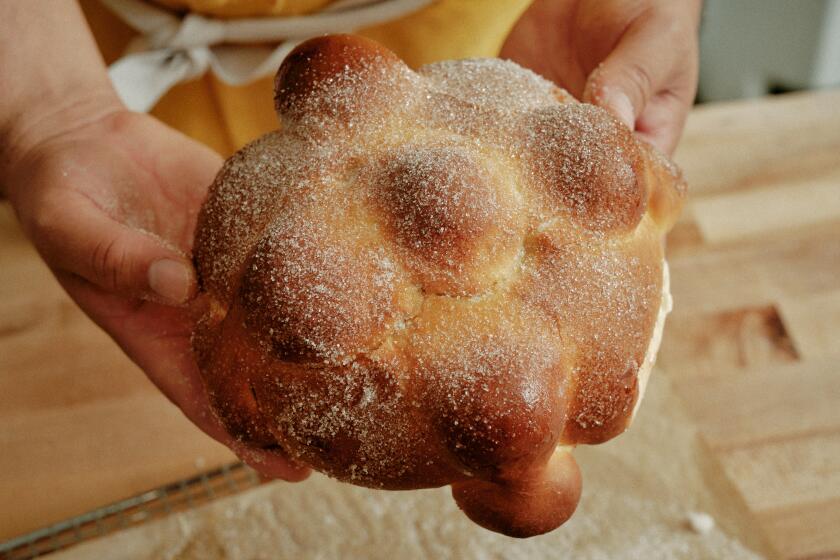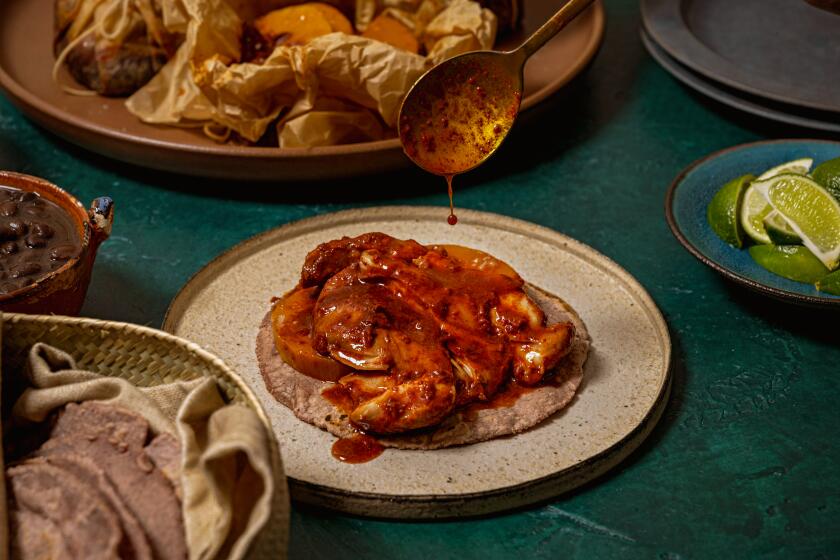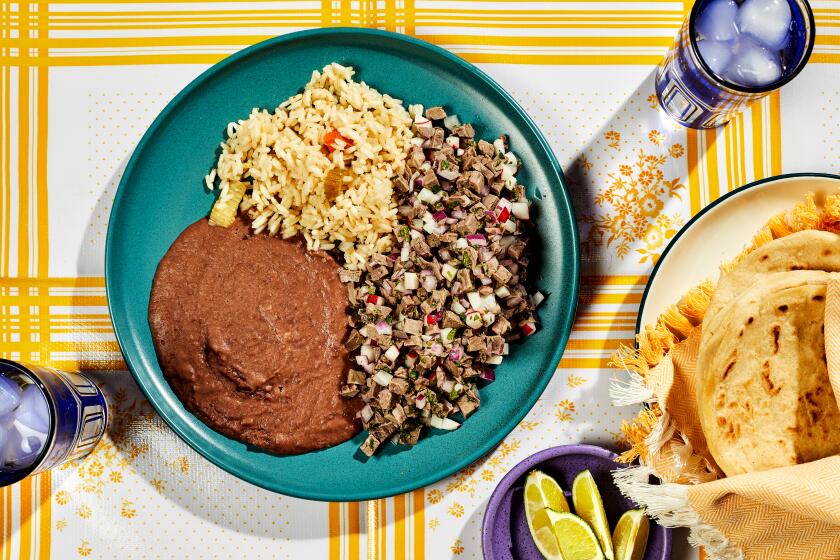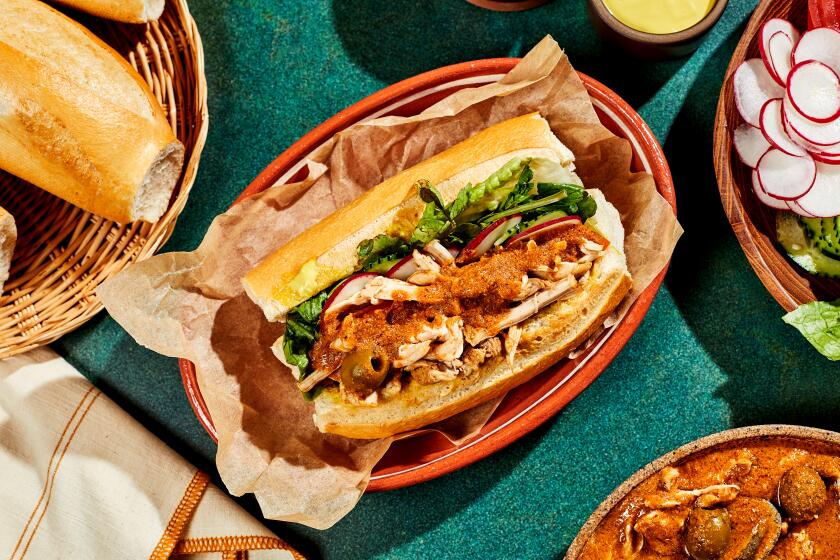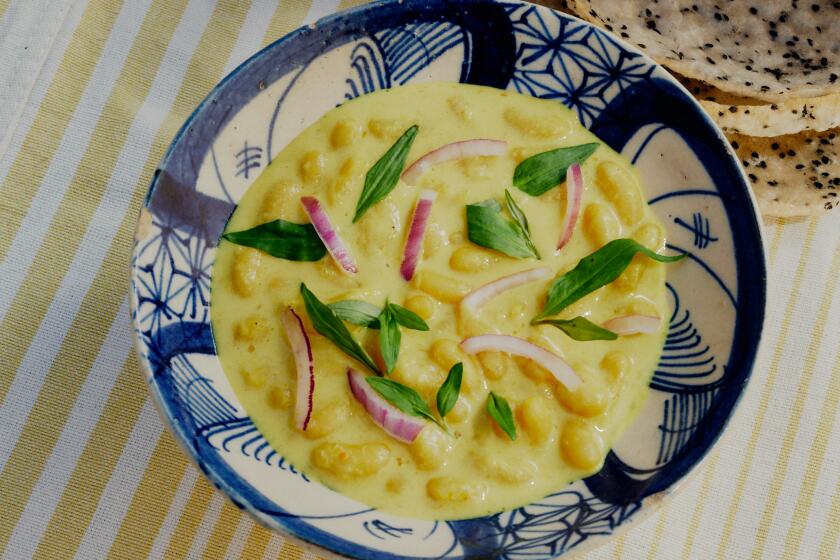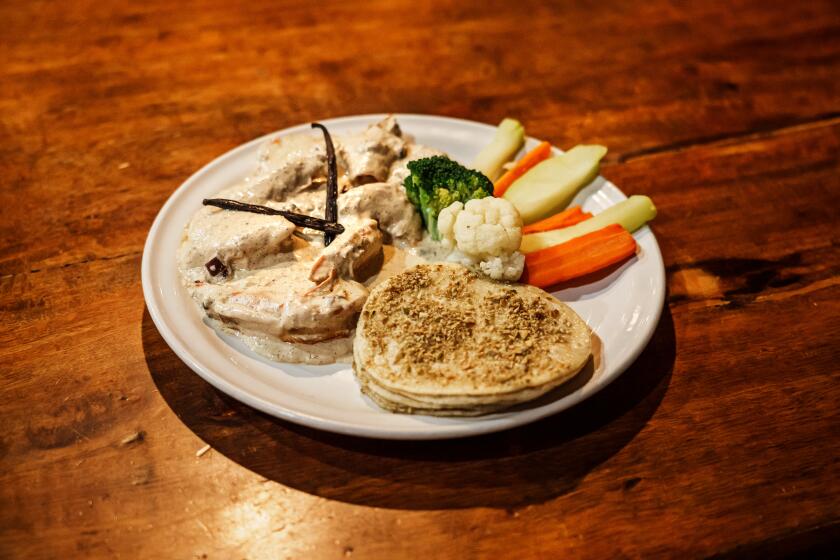Salt and Sichuan Pepper Dry-Brined Turkey
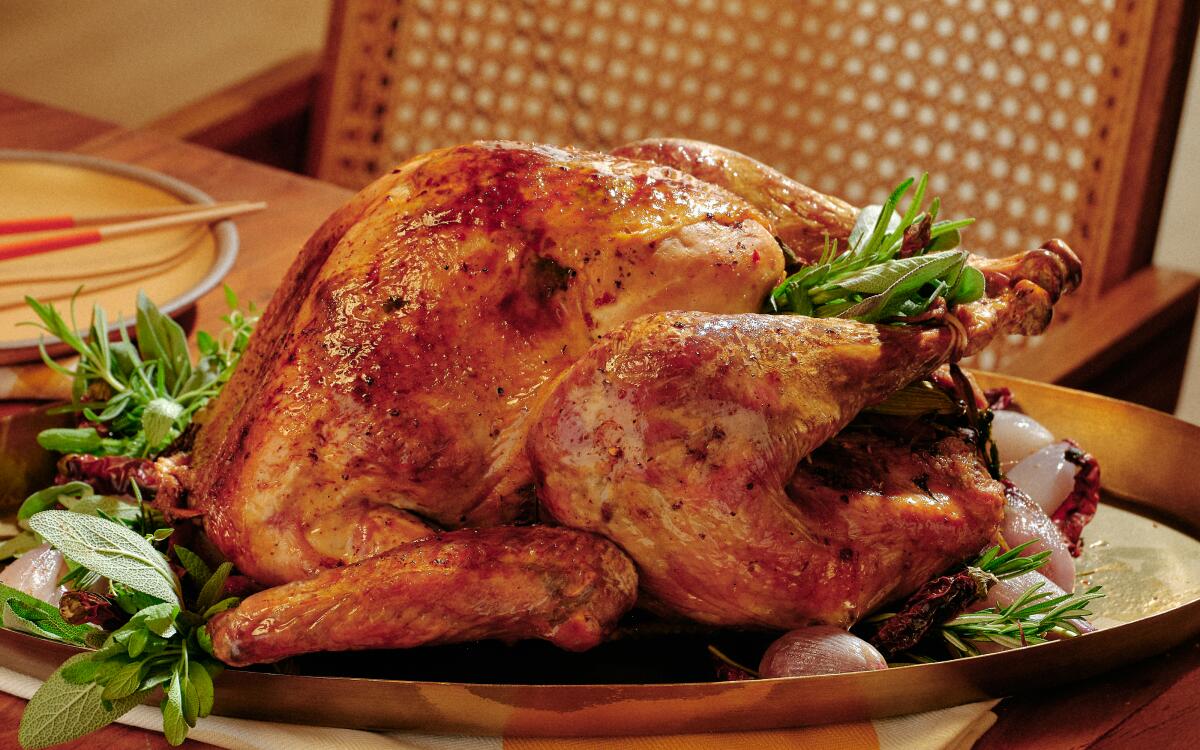
Sichuan pepper is citrusy, floral and fragrant, distinct for its tingly, numbing effect. Not a peppercorn but the berry of a tree in the citrus family, Sichuan peppers are combined with salt here for a distinctive dry brine for Thanksgiving turkey. In the canon of Sichuan flavor profiles, of which there are dozens, this particular combination is called jiaoyan wei. It’s often served as a condiment for roasted meat. Using it as a rub creates an especially fragrant, savory turkey.
Start the dry brining a full day in advance of roasting.
Pat the turkey dry thoroughly with kitchen or paper towels. Rub the bird all over with kosher salt and Sichuan pepper, under the skin (use the edge of a silicone spatula or your fingers to gently separate the skin from the breast and leg meat) and into all cavities.
In a small bowl, combine the garlic, ginger and chile flakes and rub the mixture under the skin exclusively.
Transfer the turkey, breast side up, to a roasting pan that includes a rack to ensure airflow around the bird and place it in the refrigerator uncovered for 24 hours, or at least one hour for every pound. Remove from the refrigerator and pour off any liquid that has accumulated in the bottom of the pan. Leave the bird sitting at room temperature for 1½ hours before roasting. Remove the wire rack and place the bird directly on the pan before roasting.
Place the oven rack in the lower part of the oven and heat the oven to 430 degrees.
Cut the carrots, celery and green onions in half and insert into the main cavity along with the cilantro.
Rub butter under the breast skin and onto thigh meat.
Rub neutral oil on one side of a square of heavy duty aluminum foil and set aside.
Place the turkey in the oven and roast uncovered at 430 degrees for 20 minutes.
Remove turkey from the oven and baste with the butter in the bottom of the pan and apply the foil (oiled side down) to the breast area.
Reduce the heat to 350 degrees and roast the turkey until an instant-read thermometer registers 165 degrees at the thickest part of the thigh, approximately 10 to 13 minutes per pound of turkey, depending on your oven and the size of your turkey.
Remove the turkey from the oven and tip the turkey so the interior juices run back into the pan. Remove the turkey to a separate baking sheet or serving platter, cover with foil and several large dish towels and allow to rest for 30 minutes before carving.
Pour the fat and drippings from the pan into a measuring cup. Fat and drippings can be used to make gravy, if desired. Or pour juices over sliced turkey for serving.
Sichuan pepper is also available at Asian grocery stores and select markets.
Chinese markets carry whole dried red chiles (la jiao gan), sometimes labeled Sichuan or Chinese chiles, as well as Sichuan chile flakes. Dried arbol chiles are an option too; but they’re spicier. Toast the chiles in a dry frying pan over medium heat until fragrant, stirring constantly, about 1 minute, and grind coarsely for flakes. Or, you can use best-quality crushed red chile flakes.
Get our Cooking newsletter.
Your roundup of inspiring recipes and kitchen tricks.
You may occasionally receive promotional content from the Los Angeles Times.









